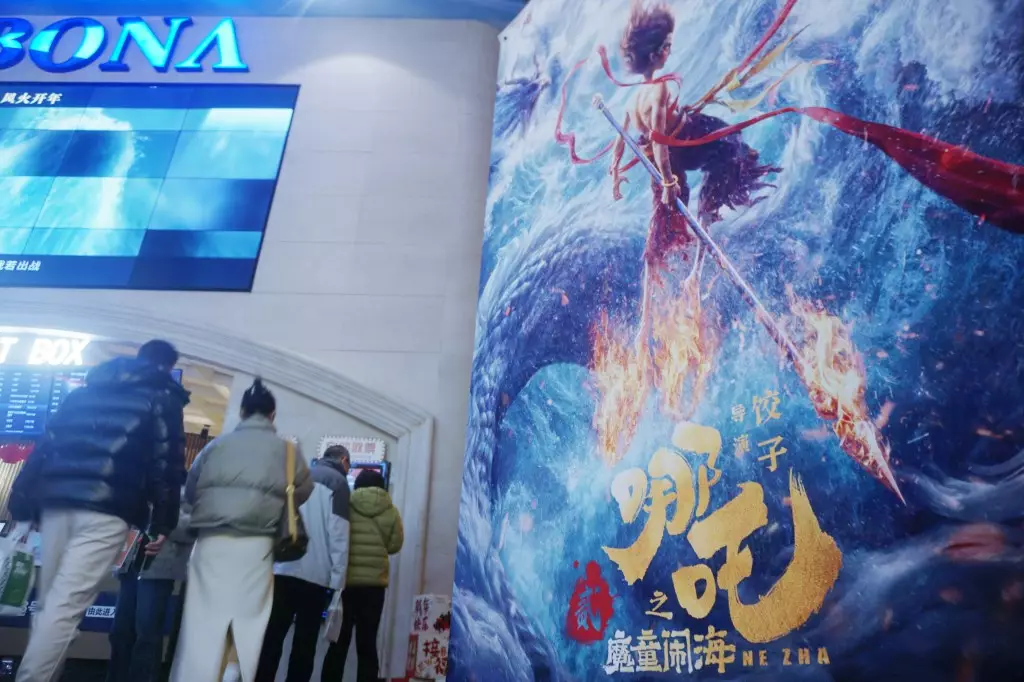The Spring Festival, synonymous with vibrant celebrations and the spirit of family reunions in China, is gaining a new reputation as a box office phenomenon. The year 2025, celebrating the Year of the Snake, marked a transformative moment for the Chinese film industry, achieving unprecedented financial success during the Lunar New Year holiday. This article delves into the implications of this box office record, exploring the cultural significance, trends, and the evolving cinematic landscape in China.
From January 28 to February 4, 2025, China’s box office revenues reached an astonishing RMB 9.51 billion (approximately $1.3 billion), shattering the previous record of RMB 8.02 billion. Analysts had anticipated this surge, particularly after January 29, which saw one of the highest single-day earnings in Chinese cinema history: a staggering RMB 1.8 billion ($247.5 million). This record-setting performance indicates not just a culmination of festive spirit, but also a revitalization of the film economy following a challenging 2024, marked by a 25% drop in overall market revenues.
The cumulative ticket sales across the holiday period reached an impressive 187 million, showcasing a flourishing interest in cinema as a primary form of entertainment during the festive season. Industry insiders, including experts like Maoyan, attribute this excitement to a blend of promotion strategies and a slate of highly anticipated films that resonated with audiences.
Leading the box office was “Ne Zha 2,” grossing over RMB 4.84 billion ($665.6 million) by early February. This animated sequel not only eclipsed its predecessor from 2019 but also positioned itself as a contender for the title of China’s highest-grossing film. There is an expectation from analysts that it may very well surpass the RMB 8.7 billion ($1.2 billion) projection and could be the first film globally to break the $1 billion mark within a single market.
Trailing closely are other notable releases such as “Detective Chinatown 1900,” which garnered RMB 2.28 billion, and “Creation of the Gods II: Demon Force” with RMB 998 million. Remarkably, each new release was connected to existing franchises or adaptations, indicating a strategic move by filmmakers to draw audiences in through familiar narratives. This pattern suggests a growing trend where established intellectual properties (IP) dominate the cinematic landscape, likely as a means of mitigating financial risk.
Stanley Rosen, a professor at USC specializing in the Chinese market, emphasized the significance of both the familiarity and quality of films during this festival season. As the Spring Festival is conventionally the most lucrative period for theatres in China, the remarkable performance signifies a potential rebound in consumer engagement with cinema, reflecting broader cultural trends in entertainment consumption.
As China faces economic headwinds, particularly with youth unemployment becoming a pressing issue, the rising demand for culture and entertainment could be interpreted as a compensating factor. In an environment where various sectors struggle, cinema emerges as a comforting escape for many, enriching cultural tourism experiences and creating a thriving atmosphere for filmmakers.
While the Spring Festival 2025 provides grounds for optimism regarding the future of Chinese cinema, questions remain about the national market’s receptivity to foreign films and the degree of censorship moving forward. Historically, Hollywood films often grapple with stringent regulations in China, but the positive reception of certain international titles in 2024 hints at a possible softening of these barriers.
The success of Spring Festival 2025 not only sets a new bar for domestic movies but could pave the way for a more inclusive global cinematic dialogue, one where collaboration could potentially flourish. This growth will be crucial as both local productions and international collaborations search for commonality in stories that resonate globally.
The dynamic nature of the Spring Festival box office in 2025 underscores a hopeful trajectory for the Chinese film industry. As audiences increasingly embrace the magic of storytelling in theatres, the strategic focus on IP, economic realities, and cultural demands will likely continue to shape the cinematic narratives that resonate with millions. The fusion of tradition and modern entertainment is a potent reminder of China’s vibrant cultural landscape, making it an intriguing market to watch in the years ahead.

